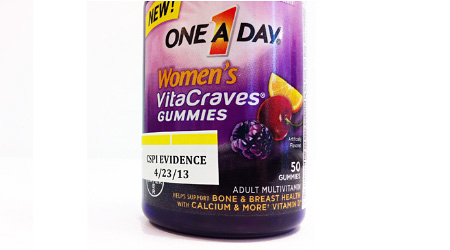Bayer May Face Lawsuit for Multivitamin Cliams

The nonprofit group, the Center for Science in the Public Interest, sent a letter to Bayer stating that it may file suit if the company continues to make unproven health claims regarding its multivitamins. The lawsuit would be for violating state consumer protections laws due to Bayer's claims its supplements "support" various aspects of health like blood pressure and metabolism.
As an example of the erroneous claims the CSPI says Bayer makes, it cites the company's One A Day web site which reads, "Take One A Day Women's multivitamins formulated with a high level of vitamin D to support breast health." This would appear to be contrary to studies which show there is no conclusive evidence that Vitamin D plays a role in preventing breast cancer.
"Bayer is literally putting One A Day multivitamins on a par with mammograms," said CSPI litigation director Steve Gardner. "Bayer is saying: 'Take these pills and you'll reduce your risk of breast cancer.' And elsewhere, when the company says it 'supports breast health,' it knows full well that cancer is far and away the top breast health issue for women."
This isn't the first time Bayer has faced legal action for making health claims about its supplements. Bayer paid a $3.2 million civil fine in 2007 over weight-loss claims for its One A Day multivitamin resulting from a consent decree with the Federal Trade Commission and Department of Justice.
The CSPI filed suit against Bayer in October 2009 over claims that One A Day Men's multivitamins might reduce the risk of prostate cancer because it contained selenium. One of the largest prostate cancer prevention trials ever demonstrated that "selenium was no more effective at reducing prostate cancer risk than a placebo" and was stopped.
Congress removed supplements from Food and Drug Administration oversight and are subsequently not regulated in the same way as drugs. As a result, many supplement makers continue to make unsubstantiated claims about the beneficial health effects of their products. This leaves many trying to separate fact from fiction while the government grapples with limited resources to protect consumers.







